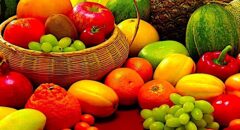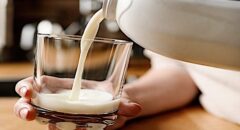 Passing a kidney stone is a painful experience that few people would ever forget, and although they are more common in men, it is important for everyone to be aware of what kidney stones are, how to prevent them, the signs of symptoms, and the treatment for this condition.
Passing a kidney stone is a painful experience that few people would ever forget, and although they are more common in men, it is important for everyone to be aware of what kidney stones are, how to prevent them, the signs of symptoms, and the treatment for this condition.
What Are Kidney Stones?
Kidney stones (also known as “renal calculi”), are crystalline “stones” formed by dietary minerals in the urine. If they occur inside the kidney, the condition is known as “nephrolithiasis.” If they occur in the ureter (the tube that connects the kidneys to the bladder), the condition is known as “ureterolithiasis.” And if they occur in the bladder, it is known as “cystolithiasis.”
Most stones are made up of calcium, potassium, and several other minerals and electrolytes, but calcium appears to be the most common kidney stone constituent, however other types of stones are also relatively common.
What Causes Kidney Stones to From?
Kidney stones form due to several factors. One major factor is low fluid intake, leading to very concentrated urine and decreased ability for the body to rid itself of these minerals through more dilute urine.
High dietary intake of animal protein, sodium, refined sugars, fructose, high fructose corn syrup, cola, grapefruit juice, apple juice, and oxalates (found in spinach, nuts, chocolate, cocoa, strawberries, rhubarb, beats and other foods) can all lead to the formation of kidney stones.
Supplementation with calcium has also been linked to the formation of stones, so taking calcium under the advice of a medical practitioner or nutritionist is recommended. However, calcium consumed from calcium-rich food sources does not seem to contribute to the formation of stones.
There is some indication that fluoride in drinking water may also be a factor, but this seems inconclusive at this time.
Diets high in animal protein can contribute to the formation of kidney stones due to the excess of certain amino acids, uric acid and other properties of animal protein that acidify the urine. With increased urine acidity, the body will remove calcium from the bone tissue to fight this rising acidity, and kidney stone formation can result.
Dehydration is a common cause of kidney stone formation. Visitors to very dry climates such as the desert, for instance, must be cautious about increasing their intake of water and clear fluids in order to prevent the development of kidney stones.
Who Is Most At Risk?
Approximately 80 percent of the individuals experiencing a kidney stone are men, and it is very common between the ages of 30 and 40. Genetics is also a factor, as well as the dietary practices mentioned above. Ten percent of all men are likely to experience this condition in their lifetime, although Caucasian men are five times more likely to develop kidney stones than African American men.
What Are The Symptoms?
The main symptom of a kidney stone is pain that can radiate from the side to the groin, genital area and inner thigh. The intense urge to urinate is coupled with blood in the urine (“hematuria”), nausea, vomiting, sweating and restlessness. “Waves” of pain lasting anywhere from 10 to 60 minutes are common.
How Is It Identified and Treated?
Kidney stones are first identified by patient history, a physical exam, x-ray, CT scan or ultrasound studies, and a urine test. The pain comes and goes in waves (known as “colic”), and fever and back pain over the kidney area may also be present.
Treatment may involve pain management with analgesics or narcotics, medications that speed the passing of the stone, as well as surgery in advanced or complicated cases. Shock waves administered from outside the body can be employed to break up the stone, as well as flexible tubes inserted through the urethra and bladder into the ureter or kidney to extract the stone.
How Can I Prevent Kidney Stones?
The prevention of kidney stones involves several preventive measures:
• Staying properly hydrated is an important practice for kidney stone prevention. Two liters of water per day is recommended, especially if you have had stones before or a positive family history.
• If you are genetically prone to certain types of stones, avoiding foods that cause the formation of those stones is prudent.
• Avoid calcium supplements if you are at risk of calcium-based stones (ask your doctor).
• Know your family history.
Knowledge is Power
If you have a family history of kidney stones, chances are that you’re at risk. It’s important to understand your risk factors, methods for preventing stones, and the signs of symptoms of the acute condition. If you’re concerned about your risk, discuss this with your medical provider. Being prepared is key, as is the knowledge of how to prevent kidney stones from forming in the first place.
For the complete article, click here.






